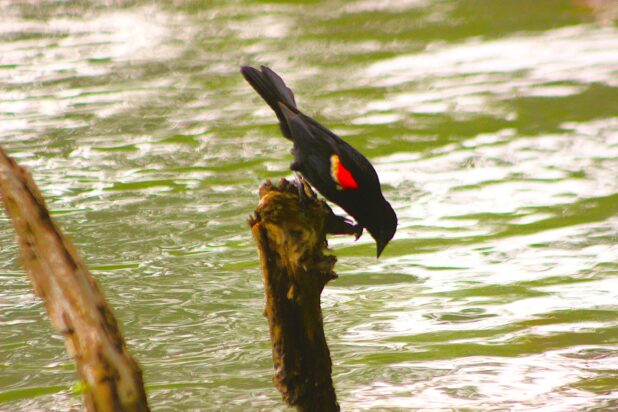Commentary
What it means to be a Canadian
July 3, 2025

By Nate Smelle
By any global measure, Canada is often described as one of the best countries to live in. But beyond the high international rankings and glowing endorsements from politicians and thinkers alike lies a more personal, introspective question: What does it truly mean to be a Canadian? And more importantly, have we, as individuals and as a society, taken the time to ask ourselves this question?
At its most visible level, being Canadian is about living in a country where people value universal health-care, a strong education system, low crime rates, and beautiful, diverse natural landscapes stretching from the Pacific to the Atlantic and up into the Arctic. It’s about clean air, a generally stable economy, a tolerant and multicultural society, and a globally admired democracy. But Canada is more than just these surface-level attributes. It is an evolving identity rooted in collective values, shared responsibilities, and a commitment to each other—especially the most vulnerable among us.
As far as I am concerned that sense of collective responsibility—of taking care of one another—is at the heart of what it means to be Canadian. But are we living up to that ideal? I suppose that is another question that each and every one of us living in Canada needs to ask ourselves.
When we celebrate our national holidays and wave the Maple Leaf—as we just did on Canada Day—are we thinking of the families struggling with food insecurity, or the Indigenous communities still without clean drinking water? Are we truly honouring the legacy of leaders like Tommy Douglas, who long ago reminded Canadians: “We are all in this world together, and the only test of our character that matters is how we look after the least fortunate among us. How we look after each other, not how we look after ourselves. That’s all that really matters, I think.”
Like Douglas, Gord Downie, one of the country’s most beloved cultural voices, challenged us before his death when he declared:“To become a country, and truly call ourselves Canada, it means we must become one.”
Unity, in his view, and mine, did not demand a sense of sameness or nationalistic pride, but shared purpose, built on justice, inclusion, and reconciliation. These aren’t just poetic ideals. They are political and personal challenges to do our best as individuals and as a nation.
Canada is not perfect, and no honest conversation about Canadian identity can ignore our struggles. Indigenous reconciliation remains a moral and national imperative. Housing affordability continues to push people to the margins. Climate change is threatening our environment, as well as our economic and physical security—especially in remote and northern communities. Political divisions arising from the hate-fueled politics of our neighbour to the south continue to chip away at our sense of unity. These are not small issues. But they do not diminish our identity. Instead, they are testing it.
And yet, we continue to be a country admired around the world for how we respond to these challenges. Our respect for rule of law and human rights, as highlighted by Canadian author Margaret Atwood, has long been a beacon to those around the world fleeing persecution or seeking a better life. “Before the Civil War, Canada was at the top of the underground railroad,” Atwood once noted. “If you made it into Canada, you were safe unless someone came and hauled you back. That was also true during the Vietnam War for draft resisters.”
This welcoming spirit is more than just policy; it’s embedded in the national psyche. As former minister of families, children and social development Jean-Yves Duclos recognized, “In Canada, our diversity is our strength. Our social, political, economic and cultural progress is not made in spite of our differences, but thanks to our differences.” That is a radical and rare statement in a world increasingly defined by xenophobia and division. But do we believe it in practice? Or is it something we simply recite at official events?
To be Canadian means to constantly engage in the work of becoming better—not only for ourselves but for each other. That includes standing up for environmental sustainability, not just for our own quality of life, but for future generations. As Dr. David Suzuki warns, “We must all remember that Canada is extremely vulnerable to climate change. We are a northern nation that is already warming at twice the global average, four times the average in the arctic. We have the longest marine coastline in the world, so sea-level rise is already hammering us. Glaciers that are a critical source of water that feed some of our great watersheds are vanishing with astonishing speed.”
This brings up yet another question demanding our attention as Canadians: Do we respond to such potentially catastrophic crises with urgency, or complacency?
There is an old saying that Canadians are “quietly proud.” We are not known for brash patriotism or fervent nationalism despite what the MAGA-inspired Canadian far-right tries to sell us. But maybe that quietness is exactly what makes our pride so profound. It’s in the way we help shovel our neighbour’s driveway, or welcome a new family on the block, or protest when we see injustice. It’s in our literature, our music, and even in our disagreements—how we choose to have them with respect, grounded in the belief that we’re better off when everyone’s voice is heard.
The iconic Canadian music artist and peace activist Neil Young recently penned a a letter to our Prime Minister Mark Carney highlighting that Canada is facing unprecedented threats—not just to our resources, but to our very soul. “Canada is facing threats to its very existence, incredibly from people we thought were our friends,” wrote Young. “They want our resources, they want our land, they want our fisheries, they want our water, they want our Arctic, maybe they want our souls. I know the U.S. president could use a soul. It takes more than bravado to fight this kind of a threat. It takes brains, deep economic knowledge of how the world works, it takes strong, intelligent strategies, and the ability to recognize and seize opportunities both at home and on the world stage, opportunities that can bring a new level of prosperity and safety to people…..people who right now may be paralyzed with fear as they look to the future of Canada and the world.”
We must ask: how do we defend that soul? Is it by guarding our land, yes—but also by protecting the ideals that define us?
To be Canadian is to live in paradox. We are one of the wealthiest countries on Earth, yet inequality persists. We are peacemakers and peacekeepers, yet we still struggle to make peace with our own past. We are multicultural, yet racism and exclusion continue to stain our society. But perhaps the beauty of the Canadian identity lies not in perfection, but in our perpetual striving to do our best. Our greatness is not a fixed trait—it’s an ongoing project that is evolving.
Let us not be passive recipients of our country’s legacy but active stewards of its future. So, now that Canada Day has again come to pass, let’s all ask ourselves: What it means to be Canadian?
Is it a passport? A set of laws? The opportunity to live in a pristine natural landscape that calls to us?
Or is it something deeper—a quiet responsibility to care, to include, to protect, and to act in the interest of others alive today and future generations?
We are all responsible for defining what Canada represents to the world, and what it means to be a Canadian. Therefore, Canada is what we make of it.













